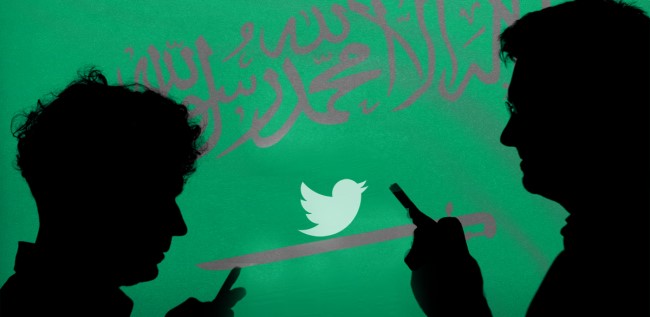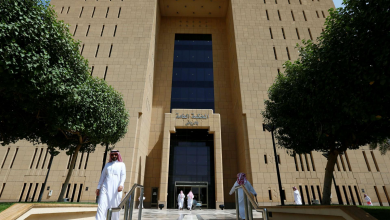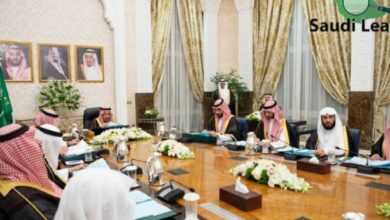Twitter blows new scandal for the Saudi regime

Twitter blown a new scandal for the Saudi regime by announcing the deletion of 6,000 accounts supported by the authorities of the regime for the purpose of druming it.
Twitter announced that the deleted account was part of an information process supported by the Saudi authorities and originates from the Kingdom.
Twitter said that these accounts were amplifying messages in support of the Saudi authorities by exaggerating the liking of tweets, reposting them, and responding to them.
This is not the first time that Twitter has deleted thousands of accounts that fall under the electronic flies operating in favor of the Saudi regime.
Rather, the last massive deletion campaign was last September, when the site announced the suspension of the personal account of the former adviser to the Saudi royal court, Saud Al-Qahtani, who was following him more than one million and 300 thousand tweets, and with him he suspended six accounts linked to the Saudi government. In the same campaign, 267 accounts were deleted from the UAE and Egypt.
The site then explained that the deleted accounts were managed together in a complex information process targeting Qatar, Iran and other countries.
A month earlier, in August 2019, Facebook announced that people associated with the Saudi government had run a network of fake accounts and pages on the popular site, to promote state propaganda and attack opponents in the region.
“Facebook” said in an official statement, that it closed more than 350 accounts and pages on them all about 1.4 million followers, in the latest campaign in an ongoing effort to combat “coordinated false behavior” on its platform, and in the first activity of its kind that the company linked to the Saudi government.
And last month, the Washington Post published a report about the blogging site “Twitter” which the Saudi regime used to spy on its opponents and penetrate their accounts.
Under the headline (In Saudi Arabia, Twitter became a useful tool for the oppressed rather than the oppressed), the newspaper published its report in which it said that Omar Abdel Aziz, a Saudi activist based in Montreal, Canada, was one of 9.9 million Twitter users, but his history provides a picture of the rest.
She added that the Twitter network, which was at the center of the efforts of the Saudi Crown Prince Mohammed bin Salman to pursue opponents and publish misleading stories about them, led to the opposite.
On Friday, Abdul Aziz wrote in an article in the Washington Post in which he said that more than 30 Saudi citizens affecting social media platforms told him about being blackmailed by using materials stolen from their mobile phones, just as it happened to Abdel Aziz’s phone, which was penetrated by an espionage system manufactured by an Israeli company called “NSO Group.”
These efforts were a response to them, not because they criticized the system in general but because they publicly criticized it through Twitter. Among the three most influential people on Twitter, Abdel Aziz said that one of them was arrested, the second disappeared without a trace, and the third is in exile.
The aim of blackmail, he says, was to focus on this social media platform.
People targeted by the prosecution campaign were asked to post pro-government promotional and propaganda materials on Twitter, or else the stolen items from their phones, including the pictures, were revealed.
Submission to the request means joining the army that Saud al-Qahtani, the former royal court adviser known to the activists as the “Minister of Flies,” has collected.
Abdel Aziz was gathering a counter army called “electronic bees” and in cooperation with Washington Post journalist Jamal Khashoggi who was killed and cut off at the Saudi consulate in Istanbul last year. He was killed two months after the discovery of their attempt, as he wrote to Abd al-Aziz: “Our Lord is helping us.”
The newspaper says that Twitter is widespread among the Saudis because it is the only arena available to them, especially that true protest is prohibited.
Abdel Aziz’s experience of living “democratically” on the Internet and then observing the stifling of democracy, where electronic flies used the platform to spread praise for the regime, is a picture of a campaign of repression of society, which Mohammed bin Salman tried to cover up through an international relations campaign.
The Abdul Aziz experience provides an occasion for the question that is chasing technology watchers around the world and specifically watching governments like China portraying the faces of half a million Muslim Uighurs in one month, the Myanmar government and its associated Facebook pages that incited the genocide of Rohingya Muslims, and “what happens when the service becomes A useful means of repression, not oppressors?”





